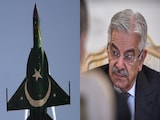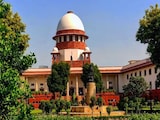File photo of the UN Security Council
Reuters
New York:
The UN Security Council on Thursday held talks on the unraveling crisis in Iraq, where Kurds seized control of the contested oil city of Kirkuk and Arab jihadists pushed towards Baghdad.
The consultations behind closed doors began shortly after 11:30 am (1530 GMT) and were due to include a briefing by video link from the UN special representative to Iraq, Nickolay Mladenov.
It remains deeply unclear what further steps, if any, the UN Security Council can take.
Russia, the current president of the Security Council, blamed the 2003 US-led invasion and the inadequate restructuring of the Saddam Hussein-era state apparatus before US troops left in 2011.
"It's obviously an extremely dramatic situation, clearly rooted in what happened in Iraq in 2003-2004," Russian ambassador Vitaly Churkin told reporters on his way into the meeting.
"As far as we're concerned, we believe that the mission was not accomplished."
"Now we need to see what can be done. As far as Russia is concerned, of course, we are strongly supporting the Iraqi government under the current circumstances. Let's see what views are going to be expressed in the course of the discussion."
On Wednesday, the council condemned in "the strongest terms" the takeover of Iraq's northern city of Mosul by the Islamic State in Iraq and the Levant, blacklisted as a terror group.
It denounced "terrorist attacks that are being perpetrated against the people of Iraq in an attempt to destabilize the country and region" and expressed grave concerns for hundreds of thousands of people who have fled their homes.
Mladenov, a former Bulgarian foreign minister, heads the UN Assistance Mission for Iraq, whose main task has been to help the government with political reconciliation efforts and elections.
He has previously emphasized the impact of the civil war in Syria on deteriorating security in Iraq, and the spillover of extremists groups across the border into Iraq.
The consultations behind closed doors began shortly after 11:30 am (1530 GMT) and were due to include a briefing by video link from the UN special representative to Iraq, Nickolay Mladenov.
It remains deeply unclear what further steps, if any, the UN Security Council can take.
Russia, the current president of the Security Council, blamed the 2003 US-led invasion and the inadequate restructuring of the Saddam Hussein-era state apparatus before US troops left in 2011.
"It's obviously an extremely dramatic situation, clearly rooted in what happened in Iraq in 2003-2004," Russian ambassador Vitaly Churkin told reporters on his way into the meeting.
"As far as we're concerned, we believe that the mission was not accomplished."
"Now we need to see what can be done. As far as Russia is concerned, of course, we are strongly supporting the Iraqi government under the current circumstances. Let's see what views are going to be expressed in the course of the discussion."
On Wednesday, the council condemned in "the strongest terms" the takeover of Iraq's northern city of Mosul by the Islamic State in Iraq and the Levant, blacklisted as a terror group.
It denounced "terrorist attacks that are being perpetrated against the people of Iraq in an attempt to destabilize the country and region" and expressed grave concerns for hundreds of thousands of people who have fled their homes.
Mladenov, a former Bulgarian foreign minister, heads the UN Assistance Mission for Iraq, whose main task has been to help the government with political reconciliation efforts and elections.
He has previously emphasized the impact of the civil war in Syria on deteriorating security in Iraq, and the spillover of extremists groups across the border into Iraq.















